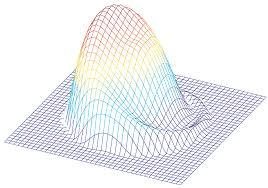IE609 - Mathematical Optimisation Techniques

Instructor
Ashutosh Mahajan
Semester
Autumn ‘20
Course Difficulty
The course is of moderate difficulty. The contents are easy to follow and it is easy to establish relationships between different topics (i.e. the course won’t seem to be consisting of many disjoint topics). The course consists of, as the name suggests, mathematical optimisation techniques, and they are quite intuitive. They are not very mathematically rigorous, and are quite easy to understand once you develop an intuition as to why we are using the particular technique. The exams are moderate, and consist of application of the techniques taught to very real life problems. A good score is possible even if you go through the lectures and the notes. Summary: difficulty is moderate.
Time Commitment Required
3-4 hr/week
Grading Policy and Statistics
The grading is absolute, but it is easy to score well in the exams.
Attendance Policy
No attendance required. Recordings and lecture slides are provided.
Pre-requisites
Just some basic knowledge on simplex would be beneficial, but overall there are no hard prerequisites.
Topics Covered in the Course
Examples of Optimization problems, mainly from decision making viewpoint. Fundamental theorem of linear programming, Degenerate solutions, Simplex based methods, Cycling, Duality, Complementary slackness conditions. Non-linear programming: First and second order conditions. Iterative methods and associated issues. Line search methods: Stationarity of limit points of steepest descent, successive step-size reduction algorithms, etc. Hessian based algorithms: Newton, Conjugate directions and Quasi-Newton methods. Constrained optimization problems: Lagrange variables, Karush-Kuhn-Tucker conditions, Regular points, Sensitivity analysis. Quadratic programming, Convex problems.
Teaching Style
Live lectures, with recordings and slides provided later. The slides are comprehensive - professor writes everything he speaks. Prof. Mahajan is very helpful and encourages interaction in the class.
Tutorials/Assignments/Projects
Moderately difficult, and professor and TAs are helpful with doubts encountered while solving them. The tutorials are directly helpful in the exams, and highly encouraged solving them yourself. Solutions are also provided after the deadline.
Feedback on Exams
Midsem and endsem are open book. Very interesting problems, and not very tough. Easy to figure out by solving assignments and lecture problems.
Course Highlights
Prof. Mahajan’s sense of humour :)
How strongly would I recommend this course?
Very strongly. It’s a breath of fresh air from the normal mathematics courses, and with some very practical applications.
When to take this course?
I took it in the autumn semester of my 4th year. While this course can be taken in any year, I’d recommend taking it in the third year or later, once a decent mathematical base is developed for greater understanding of why we are doing what we are doing.
Going Forward
Optimisation, machine learning
Review By: Pruthak Joshi